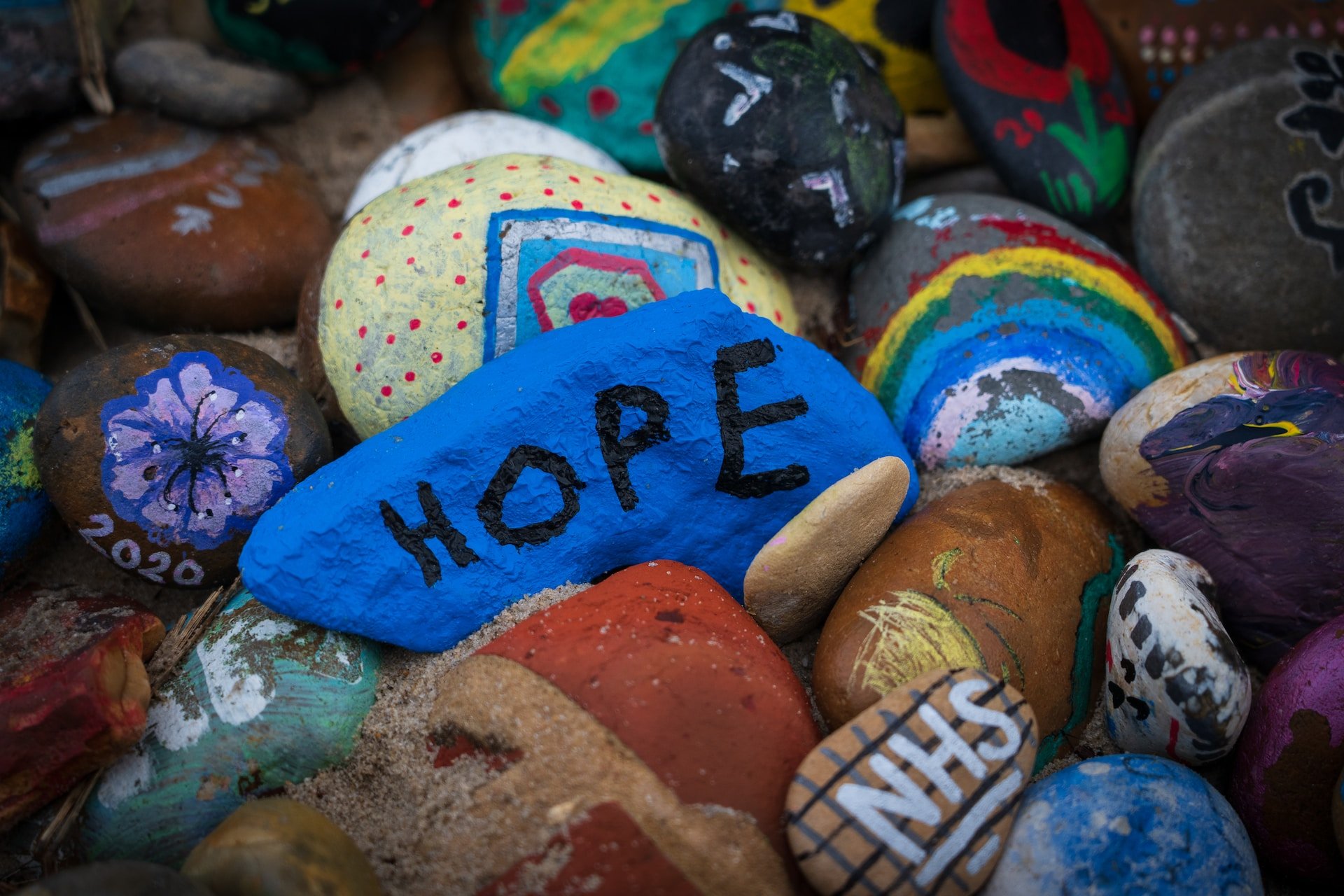“To be hopeful in bad times is not just foolishly romantic. It is based on the fact that human history is a history not only of cruelty, but also of compassion, sacrifice, courage, kindness. What we choose to emphasize in this complex history will determine our lives.” …
Read moreA Beauty of Needs Practice
When thinking about the beauty of needs like gratitude, celebration, and appreciation, the early morning view from my window comes to mind.
I see the sunrise and my entire being is flooded with whatever chemicals we produce when we experience a joy so powerful that our entire body feels that joy. My breath pauses. Tears well up. My throat and chest feel a surge like… love?
I’m nearly speechless, “Wow! Wow! Wow!”
What an incredible gift to see and to appreciate this spectacular event. What a gift is nature and its beauty. …
Read moreEquanimity in Today’s World
Recently, I’ve been involved in conversations concerning how to be in the world with the terrible violence of wars, climate change, political division, and social disconnection between groups and ideologies.
People say they don’t want to ignore what’s going on in the world and at the same time they don’t want to be so overwhelmed by events that they numb out and lose their life energy.
How to be in the world with what might be called “equanimity”? …
Read moreA Celebration of Needs-Consciousness!
These past few years I’ve noticed more people in the media talking about people’s values and needs—and I’m feeling pretty excited and encouraged with that awareness. To be clear, I hear plenty of labeling and name calling too, and yet I want to notice and appreciate comments that are less judgmental.
I’ve been hearing more exploration of viewpoints with the focus on concerns and values. I’m remembering a top public health official during the pandemic talking about people who weren’t taking the vaccine, wearing masks, or were against the closure of schools, etc. …
Read moreCompassionate Communication… “Natural” but not “Habitual”?
When I hear people say about NVC, “This is not natural,” I think to myself, “Oh, it is natural, but I’m guessing it’s not habitual!”
We’re born with feelings that bring attention to needs. Babies cry when they’re hungry, tired, wet, or needing care of some sort. Babies usually gurgle happily when they’re comfortable and someone is smiling, playing, and tickling—giving them attention.
If we were all encouraged to notice, feel, and acknowledge our feelings and needs, we would continue that natural connection. Instead, it seems that we learn to stuff, hide, or be embarrassed about our feelings and needs, and we lose connection with them. But they are a natural part of being human. …
Read moreSanctuary
Many years ago, I had just returned home from work, and right away I was mad at my daughter for not doing her homework. She asked me, “Are you mad at me or are you mad about what happened at work today?” The truth was, I was mad about work. That was what had all my attention. In that space, there wasn’t much room for, “Hi Honey, how was your day?”
In my experience, it can be difficult to have an open heart when it’s already too tired, and our focus is on what’s wrong. Neither of these conditions leaves much room for connection. This is a helpful thing to notice. Because, if we notice when we don’t want to connect, we can also notice when we need to rest and reset. …
Read moreStarting at the Beginning
Need an NVC reset? Here’s an article I wrote for the Changing Self Talk to Self Care class a few years ago that could be helpful.
“When Dr. Rosenberg recognized that judgments and blame were a significant factor in understanding violence, he saw that if we look underneath them, we can find out what is really going on. Knowing this, we could change course and find kinder, more helpful communication solutions. As a result, he developed Nonviolent or Compassionate Communication (NVC).
NVC transforms judgments (including self-judgments) by using them to find the deeper messages expressed by our feelings and needs. It has a gentle yet fierce curiosity that makes acceptance, self-care, and inner peace possible. To figure out how this works we start by looking at the four foundational principles of NVC. …”
Read moreA Lesson in Calm Confidence
Last fall Michael and I needed help with our dog Sofia. She’s a very sweet pup. However, about six months ago we had some changes at the house that really stressed her out, which of course, stressed us out too.
Here’s what we’ve learned since then. Dogs are like our mirrors. What we feel, they feel. …
Read moreBoundaries for Self-Protection and Self-Respect
Relationships are fluid and flow with interdependence, so boundaries aren’t set in concrete. However, if you find yourself frustrated that your boundaries aren’t respected, it’s empowering to know that you’re the one who can make them firm. It may not be easy, but it’s important so that we don’t build up resentment toward others for not respecting our boundaries.
Setting a boundary for ourselves might sound like …
Read moreEarthCare: Doable Actions for a Healthier Planet
This post introduces a new series—EarthCare: Doable Actions for a Healthier Planet
What does Compassionate/Nonviolent Communication (or NVC) have to do with the health of our planet? NVC cultivates life-serving awareness of needs like health, safety, peace, vitality, fairness, balance, and compassion; and seeks to meet these needs through peaceful and doable actions. …
Read moreFinding Self-Trust
This post is part of our weekly series of peacemaking practices during the Season of Nonviolence.
One of the most damaging things about believing the inner critic is that we lose our ability to trust ourselves. Instead, we begin to doubt.
“I’m not loveable.”
“I can’t do anything right.”
“I’m not good enough to be accepted.”
Believing the inner critic means we are never really free from shame and unworthiness. This damages our felt sense of value, peace, self-trust, and most of all, safety. Over time this loss separates us from who we truly are. …
Read moreWhen it’s all TOO MUCH
This post is part of our weekly series of peacemaking practices during the Season of Nonviolence.
When I consider the pain and suffering in our world, I feel overwhelmed, afraid, helpless, frustrated, lost, and in grief and disbelief. I need the madness to stop. But I, myself, can’t make it stop. Still, I need something I can do. I need simple, compassionate, and doable strategies—many small ways in which I can bring peace into my life and perhaps into the life of others. Kindness is one answer. And one way to practice kindness is with the Metta Meditation. …
Read moreListening without Joining the Judgment
This post is part of our weekly series of peacemaking practices during the Season of Nonviolence.
In Compassionate (Nonviolent) Communication, judgments are expressions of needs or values; however, they include a right/wrong, good/bad element that separates us from the humanity of the situation. Since all actions are efforts to meet universal human needs or values, judgments can separate us from that perspective and cut us off from our compassion. How can we acknowledge someone’s experience without reinforcing the judgment? …
Read morePeace through Listening
This post is part of our weekly series of peacemaking practices during the Season of Nonviolence.
Listening to someone who is hurting can be a rare and welcome gift. Listening to suffering can also be challenging; Our hearts often hurt when we are near hurting hearts. Of course, we want to make things better, to reduce their suffering. That can prompt us to give advice, tell them it will be okay, join their judgments, explain, tell our stories, etc. All these actions are attempts to help the person feel better—and sometimes they do.
With Compassionate (Nonviolent) Communication we try to first listen to the hurting person with empathy. …
Read moreListening with Presence
This post is part of our weekly series of peacemaking practices during the Season of Nonviolence.
What is it like when you are having a conversation with someone, and they are multi-tasking—perhaps looking at their phone or typing on their computer?
It probably depends on the kind of conversation. There are conversations that don’t require full attention. With the busyness of the world, we might be used to multi-tasking our communications while doing other things, and it can work.
However, if it’s something important to you, and someone is giving you partial attention, you might feel frustrated or even hurt because you want connection, consideration, and/or respect. …
Read moreResponding rather than Reacting
This post is part of our weekly series of peacemaking practices during the Season of Nonviolence.
What if someone says something that sparks an immediate emotional response and before any thinking or reflection, you fire back a judgment or an attack in reaction to what they’ve said? Just like that there can be a flurry of words that end in hurt, anger, and disconnection. Haven’t we all been there? …
Read moreTry Letting Go
This post is part of our weekly series of peacemaking practices during the Season of Nonviolence.
What are some things we (mostly) have control over? What are some things that we can’t control? … The practice of letting go is often mixed up with needing to be responsible, and that makes it hard. Yes, we do need to take care of things that our life is asking of us. Take getting to work, for example. We decide what time to leave for work and the route we’ll take. However, we don’t have control over whether or not the traffic will interfere with us getting to work on time. …
Read moreCreating Space in Your Life
This post is part of our weekly series of peacemaking practices during the Season of Nonviolence.
How do you manage your day? If you have a habit of over-scheduling or leaving “just enough time” to get where you are going, you might find yourself feeling stressed and nervous as you rush through your day, harried and harassed. If there is someone driving slowly or there is more traffic than usual or you come upon a construction project, you might find yourself angry at each delay, and you arrive at your meeting in a state of anxiety and frustration, irritated with the world.
How about choosing to start a habit that allows you to move through life with more calm and with the ability to show up as your better self? …
Read moreSelf-Connection: Time for Feelings & Needs
This post is part of our weekly series of peacemaking practices during the Season of Nonviolence.
As human beings, we rely on our feelings and needs to inform our thinking, speaking, and actions. However, one of the most common challenges we face is having the time to connect with them. Who doesn’t feel rushed or distracted most of the time?
In our culture, it’s common practice to handle overwhelming demands and time constraints by ignoring our feelings and needs. This is one way depression, anxiety, frustration, and depletion become our companions. It’s one reason our mental health gets shaky. Why? Because feelings and needs matter. …
Read moreCompassion for Others—and Self
Sometimes I notice a reluctance to have compassion for another person. I might be afraid that if I have compassion for them, I will lose myself and not have my needs met. I may even have a habit of letting compassion for others stop me from having compassion for myself and speaking up for my needs.
For example: Me – “So the reason you said, ‘Shut up’ to me is that you were tired and overwhelmed and your boss just yelled at you. Is that right?”… I used to stop there and not address how hearing, “Shut up” was for me. …
Read more




















